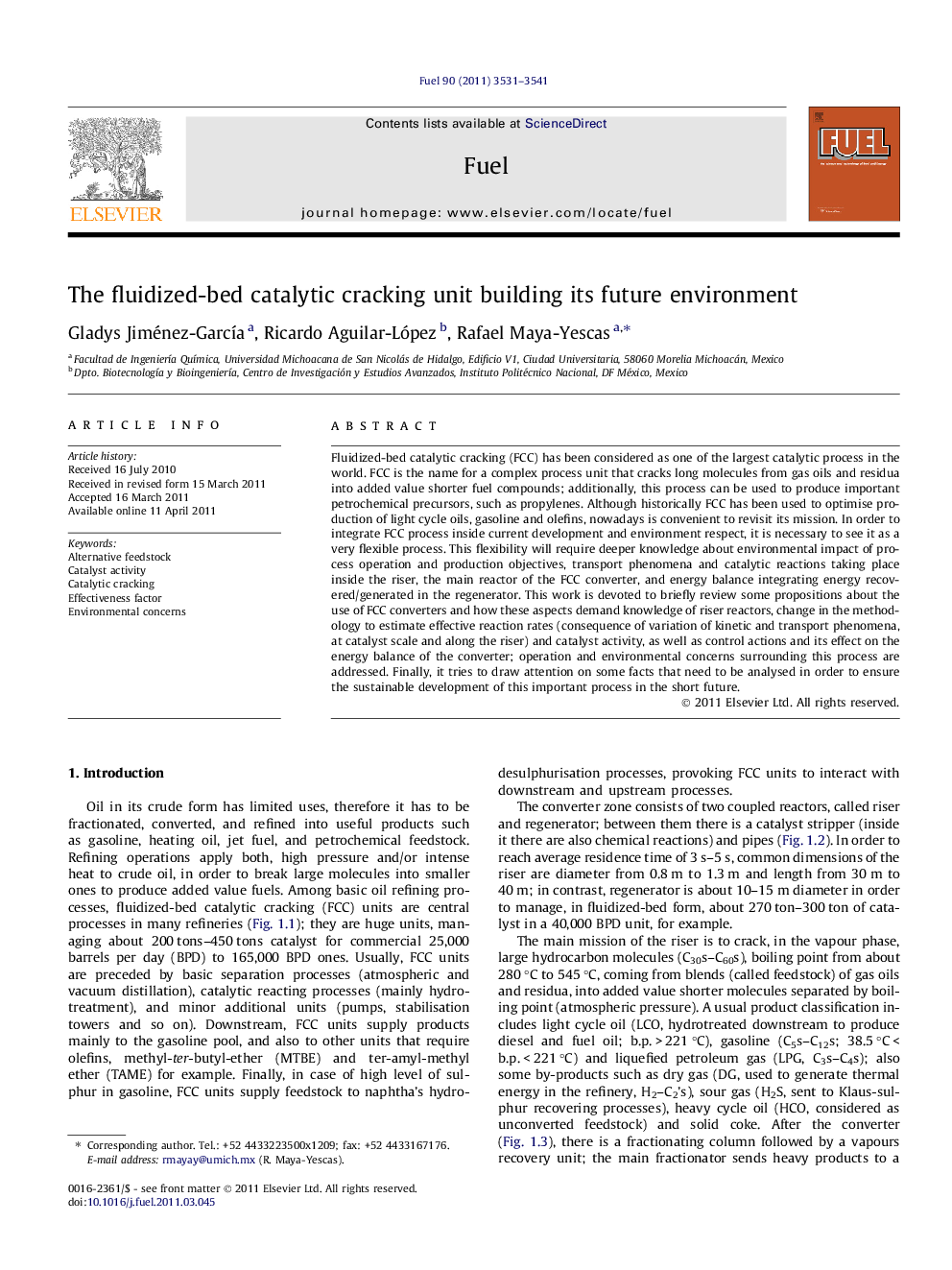| Article ID | Journal | Published Year | Pages | File Type |
|---|---|---|---|---|
| 206347 | Fuel | 2011 | 11 Pages |
Fluidized-bed catalytic cracking (FCC) has been considered as one of the largest catalytic process in the world. FCC is the name for a complex process unit that cracks long molecules from gas oils and residua into added value shorter fuel compounds; additionally, this process can be used to produce important petrochemical precursors, such as propylenes. Although historically FCC has been used to optimise production of light cycle oils, gasoline and olefins, nowadays is convenient to revisit its mission. In order to integrate FCC process inside current development and environment respect, it is necessary to see it as a very flexible process. This flexibility will require deeper knowledge about environmental impact of process operation and production objectives, transport phenomena and catalytic reactions taking place inside the riser, the main reactor of the FCC converter, and energy balance integrating energy recovered/generated in the regenerator. This work is devoted to briefly review some propositions about the use of FCC converters and how these aspects demand knowledge of riser reactors, change in the methodology to estimate effective reaction rates (consequence of variation of kinetic and transport phenomena, at catalyst scale and along the riser) and catalyst activity, as well as control actions and its effect on the energy balance of the converter; operation and environmental concerns surrounding this process are addressed. Finally, it tries to draw attention on some facts that need to be analysed in order to ensure the sustainable development of this important process in the short future.
